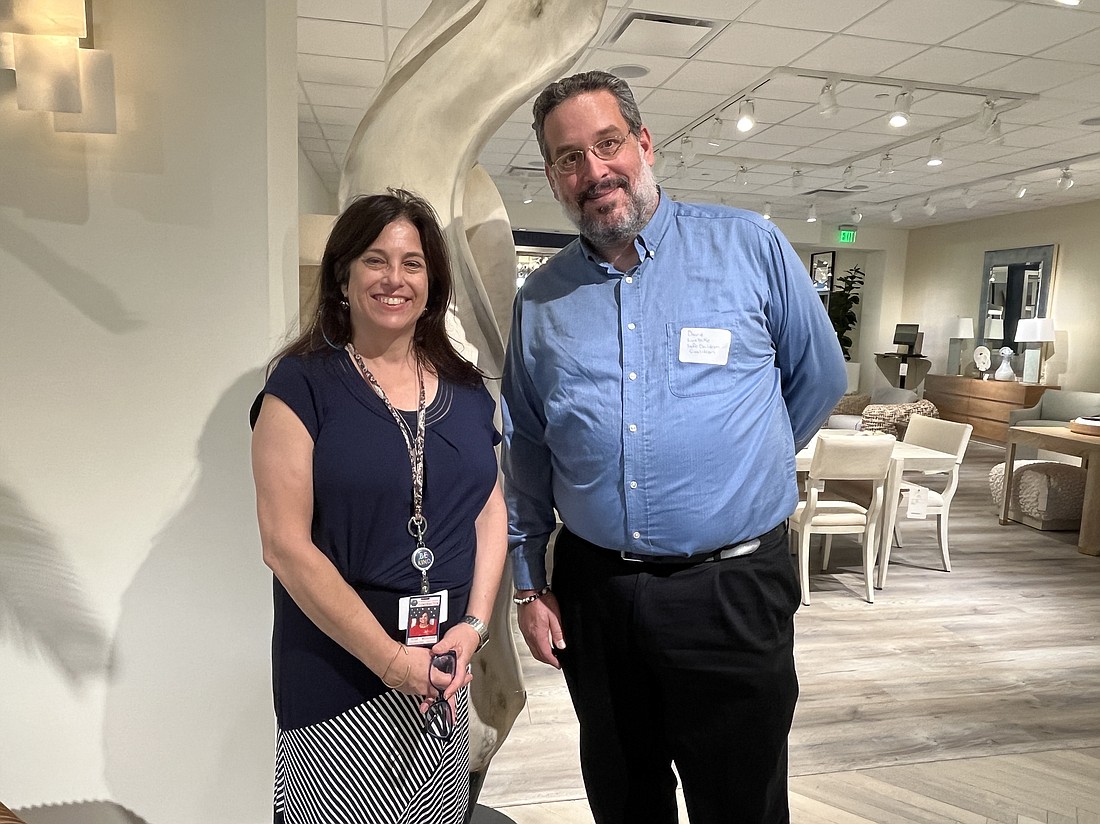- April 30, 2025
-
-
Loading

Loading

Katy McBrayer-Lynch credits Teen Court of Sarasota for turning her life around.
As a 14 year old, McBrayer-Lynch said she met an 18-year-old man who was a drug dealer. She started using drugs, her parents kicked her out of the house, and she was kicked out of Riverview High School. She started selling drugs, stealing cars and sleeping in abandoned houses.
At 15 years old, she was arrested for burglary and later arrested for possession and grand theft, which led her to Teen Court of Sarasota.
Her experiences with the nonprofit forced her to face reality. She said she went to Sarasota Memorial Hospital and met the doctor who a year earlier had pumped her stomach to save her from an overdose. She also met a police officer who cremated his daughter and showed his ashes to the Teen Court participants. His daughter died of an overdose.
Given her personal experience with the nonprofit, McBrayer-Lynch said she, more than anyone, understands how important a grant like the one the nonprofit received from the Lake Club Giving Circle is to ensuring Teen Court of Sarasota can continue to help the youth in the area.
The Lake Club Giving Circle provided $30,000 in grants to 15 nonprofits in Sarasota and Manatee counties, including one to Teen Court of Sarasota.
McBrayer-Lynch said her experience with Teen Court was the wake-up call she needed to get her life in order. She finished high school, stopped using drugs, moved back in with her parents and now serves as the board president for Teen Court of Sarasota.
“If I had a charge on my record, my whole life would be different,” she said.
Nancy Lepain, the grants chair for the Lake Club Giving Circle, said each member of the group chose the top two nonprofits to provide funding. She said she’s discovered the group’s niche for donating include children, family services and women’s services.
Since 2014, the organization has donated more than $118,000 to 30 nonprofits.
“Sometimes we live in a bubble and don’t realize there are people in our own backyard that are certainly less fortunate than we are,” Lepain said. “If there’s some small way we can help them, that’s exactly what we should do. The philosophy of the Giving Circle is to help those that are in need and do whatever we can for them.”
Some of the nonprofits are using the grants they received to launch new programs, such as Foster the Family Florida starting a respite program in Sarasota.
Kimberlee Peralta, the director of Foster the Family Florida, said the respite program will give parents a three hour break from their children. The children will be provided activities, dinner and snacks, and parents will receive a gift.
The turnover rate of foster homes is substantial, Peralta said, as the foster families do not feel supported.
“No matter how many organizations are offering respite, there can never be enough,” she said. “There are over 700 kids in foster care in our area, so the homes have a lot of children. Some of the families we serve have eight to 10 kids in their homes so you can imagine trying to get a babysitter for 10 kids so they can go out for a couple hours.”
Other nonprofits are using the grants to provide supplies for its programming or support services provided.
Stillpoint Mission will be able to distribute more than 17,000 diapers through its diaper program as a result of receiving a grant.
Karen Allen, a volunteer and grant writer for Stillpoint Mission, said the nonprofit distributed 292,000 diapers in 2023, and it is on track to distribute more this year.
She said every donation helps the nonprofit’s mission. Without funds, the nonprofit would have to limit the number of diapers distributed each week, even as the number of people going to Stillpoint Mission for diapers increases.
Ellen McLaughlin, the director of Schoolhouse Link for Safe Children Coalition, said the Giving Circle grant will provide housing for a senior at Sarasota High School who is homeless. She said his mother is an addict and he never knew his dad. Without the nonprofit’s help, he might drop out of school.
“He had been living couch to couch before coming into our program and that instability had made it really hard for him to succeed in school,” she said. “We’re hoping he will graduate this summer and that will be the next step along his path to self sufficiency.”